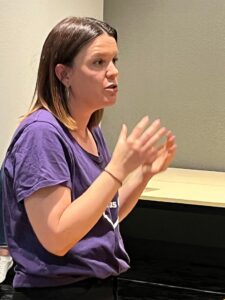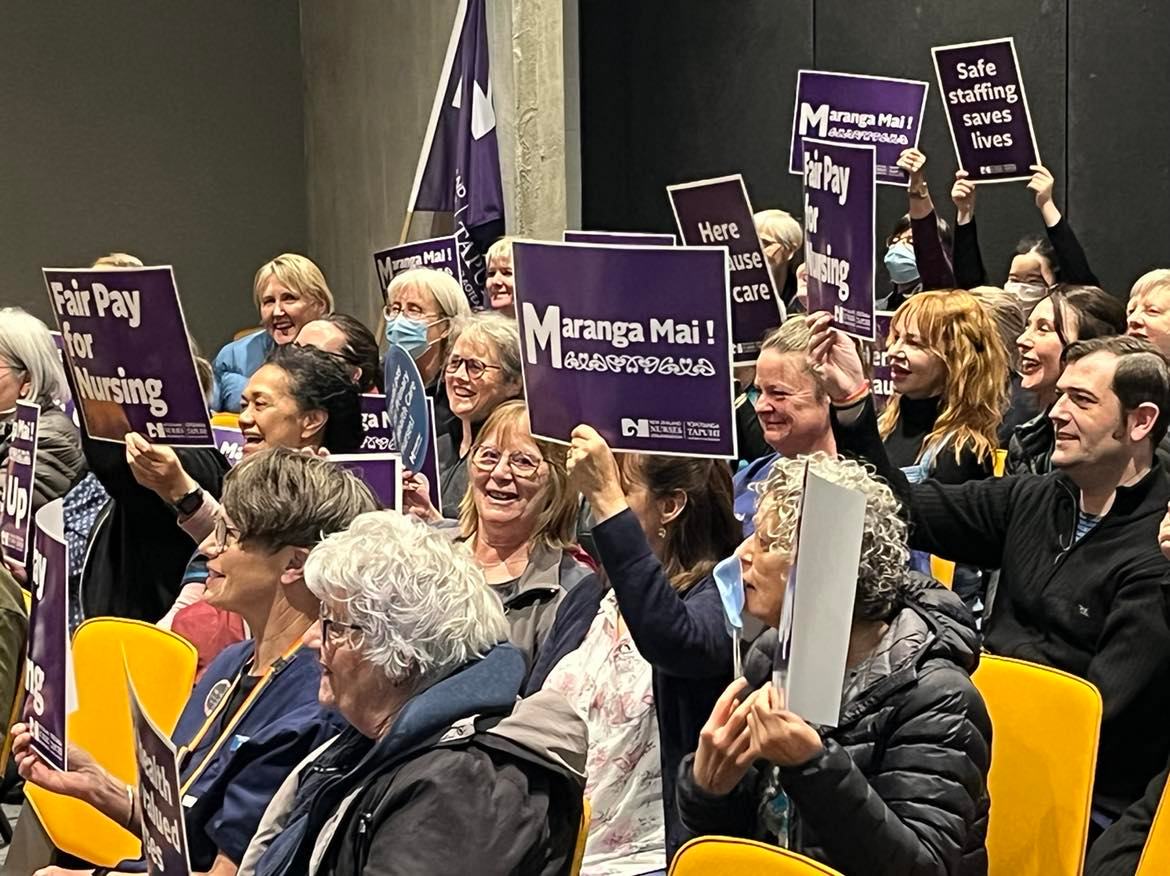A four-hour strike by more than 4000 primary health care (PHC) members employed by hundreds of medical centres, Plunket and home-based care provider HealthCare New Zealand will go ahead on October 27.
The 3500-member strong group of PHC members employed by medical centres met and voted on Wednesday, October 12.
About 700 Plunket and 176 Healthcare New Zealand members had earlier voted to strike for the same time period from 10am to 2pm on October 27.
It will be the first time Plunket and Healthcare New Zealand members have taken industrial action, NZNO Tōpūtanga Tapuhi Kaitiaki o Aotearoa industrial adviser Danielle Davies said.
An online ballot opened to PHC members employed by medical centres from 3.30pm to 5pm on Wednesday. Of 1215 who voted, 92 per cent supported proposed industrial action, Davies said.
After 14 months of bargaining, medical centre employers had not moved on their offer of 2.78 per cent.
“If members support strike action on 27 October, this will mean a wave of strikes across the primary health sector by NZNO members on this day.”
NZNO is pushing for pay parity between PHC nurses and their colleagues employed by Te Whatu Ora.
Nurses covered by the PHC MECA (those employed by medical centres) can earn a top rate of $36.02, compared to $39.88 for those employed by Te Whatu Ora – a 10.7 per cent gap.
Davies told PHC members at stop work meetings in Christchurch that industrial action was never taken lightly, but the bargaining team felt it was time for a circuit breaker, with employers and their funders locked in an intractable dispute.

“We have had discussions with the Ministry of Health and their position is that the employers are adequately funded to meet our claim of pay parity with the DHBs for members employed under this MECA. The employers refute this.
“Right now, we’re the ones with the problem: our members are facing rising living costs and lack parity with their DHB colleagues.
At one of two meetings on October 12 in Christchurch some members questioned why the action was limited to four hours, Davies said.
Primary health care nurses employed by medical centres went on strike for eight hours in September and 24-hours in November, 2020.
” . . . we’re all nurses, and we’re all doing the same job and caring for patients and we should get paid equally, so yeah, I’m just supporting my colleagues.”
But Davies said the four-hour action would be enough to get the message to the Government this time.
“Our objective, or our target, this time is actually not the employers, so we’re not looking to impact the employer services as much as possible – our target is a media and political target.”
She said planning was underway for large rallies in all main centres on October 27.
“If members support strike action on 27 October, this will mean a wave of strikes across the primary health sector by NZNO members on this day.”
The Maranga Mai! – Rise Up campaign, launched in May, aims to achieve meaningful commitments from the Government to address the health crisis through collective action by all members.
The bargaining team strategy – to coordinate the action across these three primary health care groups on October 27 – provided a powerful opportunity to put the wider goals of Maranga Mai! into action, Davies said.
A member at the Christchurch stop work meeting, who didn’t want to be named, said she was pleased the proposed strike was for four hours and would vote in favour of the action.
“I’ve always been against strikes because I think of my patients, but I think a four hour strike is very manageable, short, sharp, gets the message out there.”
The nurse said she would vote to strike because she had come to “the realisation that there was such a huge gap in partity”.
Her colleague, who also didn’t want to be named, said she would vote to strike because she was frustrated there had not been a better offer after 14 months of negotiations.
” . . . we’re all nurses, and we’re all doing the same job and caring for patients and we should get paid equally, so yeah, I’m just supporting my colleagues.”


